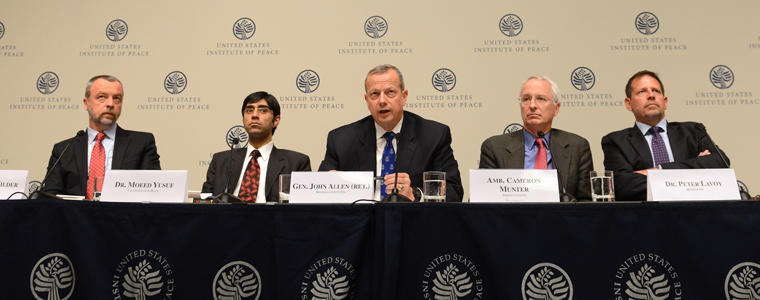As the United States prepares to reduce its military footprint in Afghanistan after 2014, one of the key issues for leaders in Kabul and Washington is how to position the remaining forces to deal with a continuing insurgency and safe havens in which it thrives, General John Allen said at the U.S. Institute of Peace on April 23.

Allen, who led the International Security Assistance Force in Afghanistan from July 2011 to February 2013, identified a “triangular relationship” that fuels the instability along the Afghanistan-Pakistan border: a nexus between ideological insurgency, criminal patronage networks and criminality, and the drug trade.
What Allen called a “witches brew” of dynamics has made it difficult for Pakistan’s military to address the root causes of the conflict along the frontier. The insurgency is exacerbated by the presence of foreign fighters who assist extremist groups, he added.
Allen spoke alongside USIP’s Director of South Asia Programs Moeed Yusuf, former U.S. Ambassador to Pakistan Cameron Munter, and former Assistant Secretary of Defense for Asian and Pacific Security Affairs Peter Lavoy. The discussion looked at new research from two recently published books, Counterterrorism in Pakistan (Georgetown University Press and USIP) and Insurgency and Counterinsurgency in South Asia (USIP Press).
Watch the full video archive of the discussion here.



